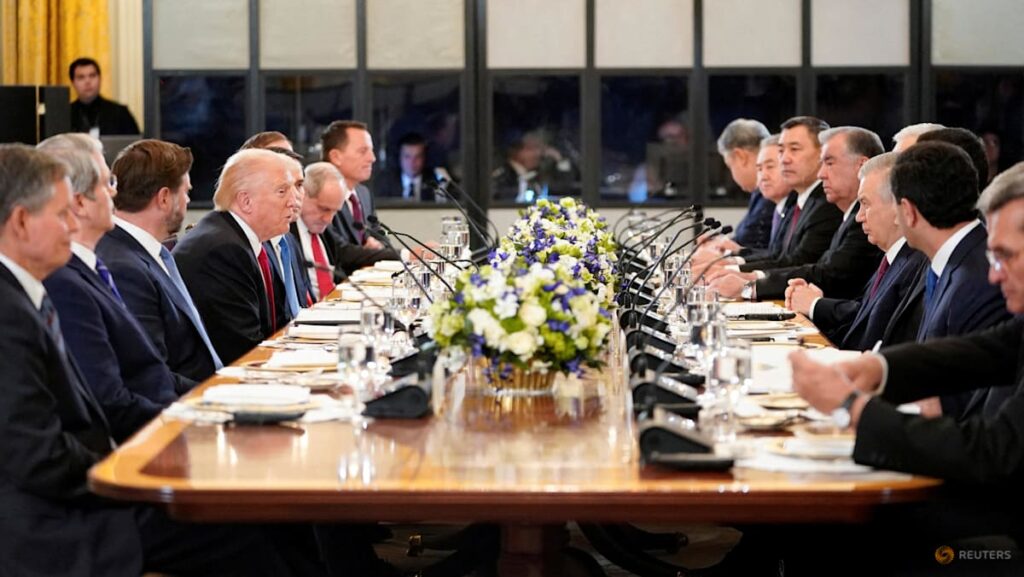CRITICAL MINERALS MEMORANDUM
The US and representatives of the five nations were expected to sign deals to cooperate on critical minerals.
Among business deals that were announced was an agreement for Boeing to sell up to 37 airplanes to airlines in Kazakhstan, Tajikistan and Uzbekistan combined, according to a government statement.
A US company, Cove Capital, will mine tungsten in Kazakhstan with government-backed financing.
Gracelin Baskaran, a director at the Center for Strategic and International Studies, said the administration will pursue government-to-government engagement but also commercial deals that secure US access to vital minerals.
“As China and Russia entrench their control over the region’s mining, processing and infrastructure systems, Washington is seeking to establish a tangible foothold through targeted strategic projects,” Baskaran said.
NATIONS ARE RICH IN URANIUM, COPPER, GOLD
Rich in minerals and energy, the five nations remain economically tied to Russia, their former Soviet ruler, while neighbouring China has expanded its influence through large-scale infrastructure and mining investments.
Together, the countries are home to 84 million people and hold vast deposits of uranium, copper, gold, rare earths and other strategic minerals essential to global efforts to transition to greener forms of energy.
Kazakhstan, the region’s largest economy, is the world’s leading uranium supplier, producing nearly 40 per cent of global output in 2024, while Uzbekistan ranks among the top five.
Together, they account for just over half of the world’s uranium production – a vital resource for US nuclear power, which is a significant source of US electricity. Russia supplies roughly 20 per cent of the US’ imported uranium, making diversification increasingly urgent.
Under Trump, the US has pursued a multi-pronged strategy to secure critical minerals and reduce reliance on China, which dominates global supply chains for strategic metals including uranium, rare earth elements, copper, and titanium.
China, at times, has leveraged its dominance by restricting exports.
Read the full article here

